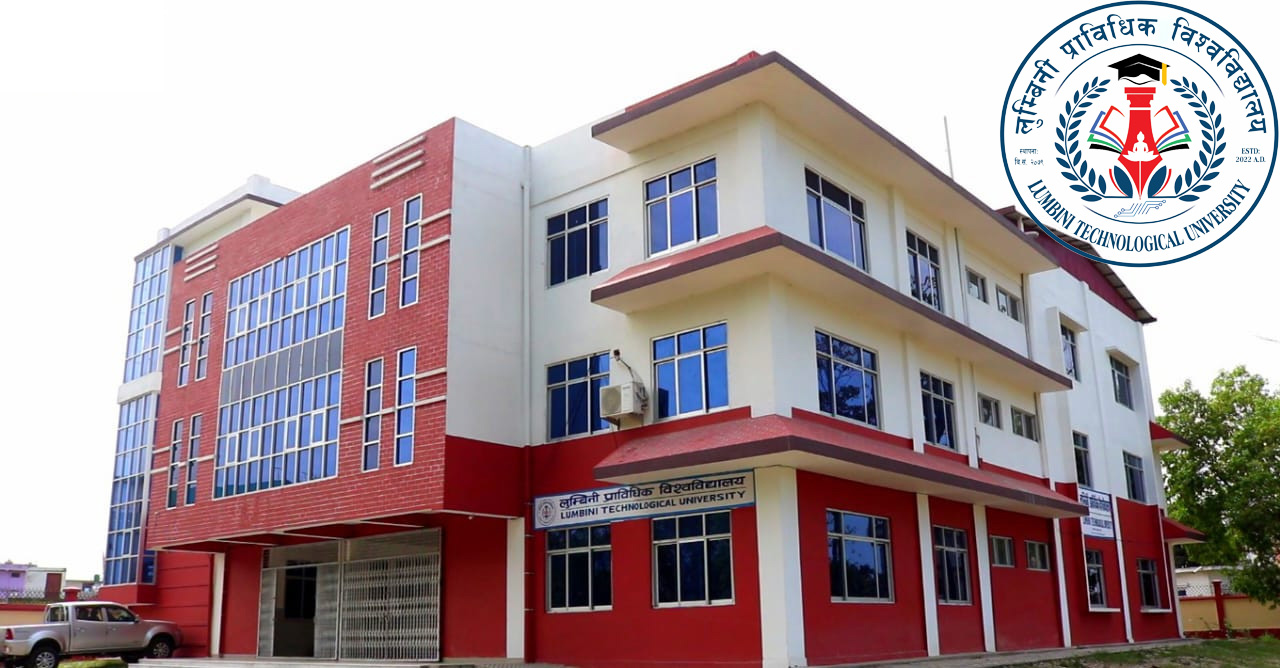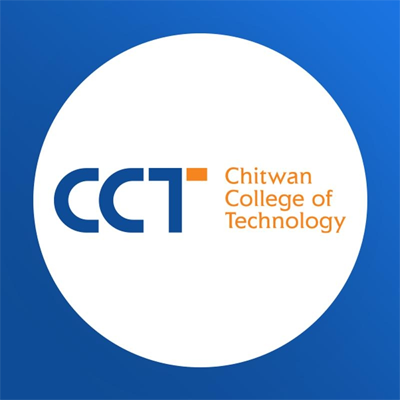Overview
Lumbini Technological University (LTU - Lumbini Prabidhik Vishwavidyalaya - लुम्बिनी प्राविधिक विश्वविद्यालय) Was formally established on July 2, 2022 (Ashar 18, 2079 BS) through an Act endorsed by the Lumbini Province Legislature. As the first technological university in Lumbini Province, LTU was created to promote higher education in technical disciplines such as engineering, information technology, agriculture, forestry, environmental science, and tourism. The university is a regional academic hub, focusing on applied learning, research, and local development.
Lumbini Province, located in southwestern Nepal, is known for its diverse geography, agriculture-driven economy, and historical significance as the birthplace of Gautama Buddha. Recognizing the need for a local academic institution to support provincial development goals, LTU was envisioned to bridge skill gaps in key technical sectors.
LTU’s foundation is built on academic rigor, technological relevance, and social inclusion. With various undergraduate and postgraduate programs, the university supports career-oriented education and prepares graduates for public and private sector employment across Nepal and South Asia.

University Highlights
| Feature | Details |
|---|---|
| Established | 2 July 2022 (Ashar 18, 2079 BS) |
| University Type | Public Provincial Technological University |
| Location | Lumbini Province, Nepal |
| Governing Body | Provincial Government of Lumbini |
| Academic Divisions | Engineering, Information Technology, Agriculture, Forestry, Tourism |
| Degree Levels | Undergraduate, Postgraduate |
| Primary Language of Instruction | English and Nepali |
| Maximum Class Size | 24 students per classroom |
| Scholarships | Provincial, merit-based, need-based |
| Student Facilities | Hostel, Wi-Fi, labs, library, transport |
| Admission Method | Entrance test, interview |
Academic Programs
Undergraduate Degrees
LTU currently offers bachelor's programs across five core areas of study. These include technical, environmental, and interdisciplinary fields that align with Nepal's socio-economic priorities:
-
B.Tech. in Information Technology (IT)
-
B.Tech. in Civil Engineering
-
B.Tech. in Computer Science and Artificial Intelligence (CS & AI)
Each undergraduate program combines core theory with lab work, field-based activities, and project-based learning to build student capabilities in practical settings.
Postgraduate Degrees
As part of its expansion strategy, LTU introduced the following master’s programs in 2025:1. M.Tech in CS - 30 Seats
Eligibility: B.Sc. CSIT, B.E. Computer, B.E. IT, B.E. Software Engineering, B.E. Electronics and Communication, B.E. Electronics or an equivalent degree approved by the institution.2. M.Tech in IT - 30 Seats
Eligibility: B.Sc. CSIT, B.E. Computer, B.E. IT, B.E. Software Engineering, B.E. Electronics and Communication, B.E. Electronics, BIT, BCA, BIM, Bachelor’s degree in ICT education or Information system, Bachelor’s degree in any academic program who has successfully completed a postgraduate program in IT or an equivalent degree approved by the institution.Admissions Process
Basic Eligibility Criteria for BTech
-
For B.Tech. in IT: Applicants must have passed Grade 12 with a minimum of D grade or Second Division from NEB or equivalent.
-
For B.Tech. in CS & AI: Applicants must have secured at least C grade or Second Division and studied Physics, Chemistry, and Mathematics.
-
Candidates who have passed Grade 11 and are awaiting Grade 12 results may appear for the entrance test but must submit certificates before final enrollment.
Step-by-Step Admission Process
-
Register online through the university's application portal.
-
Pay the non-refundable application fee.
-
Sit for the LTU Entrance Test.
-
Attend a faculty-level interview and screening.
-
Finalize documentation and enrollment upon qualification.
Enrollment and Quota System
LTU maintains academic inclusivity through its seat reservation policy:
-
General Open Category
-
Women’s Quota
-
Dalit and Indigenous Communities
-
Province-Nominated Sponsored Candidates
-
International Students
Each program enrolls 48 students per intake, distributed into classrooms with a maximum of 24 students. This model ensures greater student–faculty interaction and targeted mentoring.
Fee Structure (Academic Year 2024/25)
| Program | Nominal Fee | Full Fee | Sponsored | Foreign Student |
|---|---|---|---|---|
| B.Tech. in CS & AI | NPR 130,500 | NPR 517,500 | NPR 620,500 | NPR 715,700 |
| B.Tech. in IT | NPR 117,500 | NPR 462,500 | NPR 554,500 | NPR 635,700 |
*Security deposits and examination fees are charged separately.
University Life
Academic Support and Facilities
LTU emphasizes applied learning, encouraging students to apply classroom theory to real-world challenges. Students have access to:
-
Innovation Labs
-
Industry-relevant software platforms
-
Online learning management systems (LMS)
-
Practical workshops and tech demonstrations
Student Facilitation Center
The Student Facilitation Center offers a support ecosystem that includes:
-
Peer mentoring and tutoring for technical subjects
-
Career counseling and industry exposure programs
-
Tech Talks by professionals
-
Wellness sessions for mental health
-
Startup incubation and entrepreneurship mentoring
This center acts as a one-stop access point for academic, emotional, and career guidance.
Faculty and Teaching Methodology
LTU faculty members are drawn from academic institutions and professional backgrounds. They use an outcome-based curriculum and combine theoretical instruction with project implementation. Faculty development is supported through:
-
Guest lectures from visiting scholars
-
Research-based teaching assignments
-
Workshops on modern pedagogy
Evaluation focuses on cumulative performance: exams, assignments, project work, and lab-based assessments.
University Infrastructure and Facilities
To facilitate student learning and comfort, LTU provides:
-
Digital classrooms and computer labs
-
Air-conditioned lecture halls
-
Leased-line internet with Wi-Fi connectivity
-
Hostel accommodation for male and female students
-
Campus transportation facility
-
Library with academic databases, journals, and e-resources
-
Dining and common areas for relaxation
Student Life and Extracurricular Activities
Beyond academics, students participate in a variety of non-formal and co-curricular engagements:
-
Technical clubs: robotics, software development, cybersecurity
-
Environmental action groups
-
Sports competitions: football, volleyball, indoor games
-
Cultural events and talent showcases
-
Language improvement groups
These experiences cultivate soft skills, teamwork, leadership, and a sense of community responsibility.
Scholarships and Financial Aid
LTU encourages diversity and access through multiple aid programs:
| Scholarship Type | Allocation |
|---|---|
| Chief Minister Scholarship (full waiver) | 12.5% of total enrolled students |
| Nominal Fee Support | 25% of admitted students |
| Semester Merit Stipend | Awarded to the top 8.3% of students |
The financial support system is designed to lower barriers and reward academic effort.
Achievements and Recognitions
Since its inception, LTU has achieved the following milestones:
-
Developed six diverse undergraduate programs in under three years
-
Added two postgraduate technical programs by 2025
-
Launched a modern student facilitation center with 360° support
-
Collaborated with provincial agencies for technical workforce planning
-
Initiated tech incubators and hackathon series
Why Choose Lumbini Technological University?
Students looking for meaningful and relevant technical education will find several compelling reasons to choose LTU:
-
Programs are designed around emerging job market demands in Nepal and South Asia
-
Classrooms are small, allowing for personalized academic attention
-
University embraces academic equity with multiple scholarship schemes
-
Skill-building is prioritized through project-based learning
-
Emphasis on student-led research, innovation, and career readiness
-
Public institution backed by the legislative framework of the province
Conclusion
Lumbini Technological University offers a modern, inclusive, and academically grounded platform for higher education in Nepal. Its early success in launching relevant academic programs, providing student services, and establishing a research mindset positions it as a key institution in provincial development. As LTU matures, it will continue to focus on quality education, student empowerment, and applied research while fostering an environment where technical knowledge meets social responsibility.











